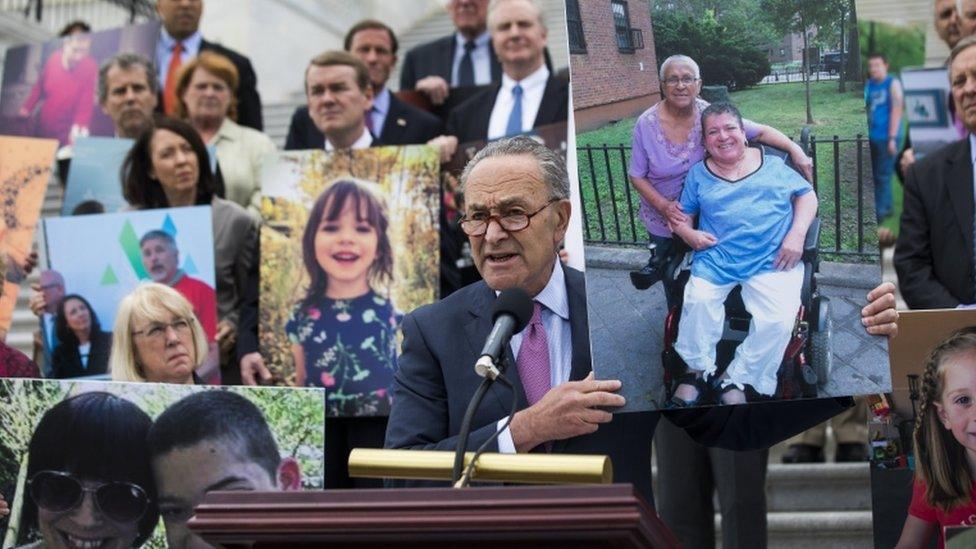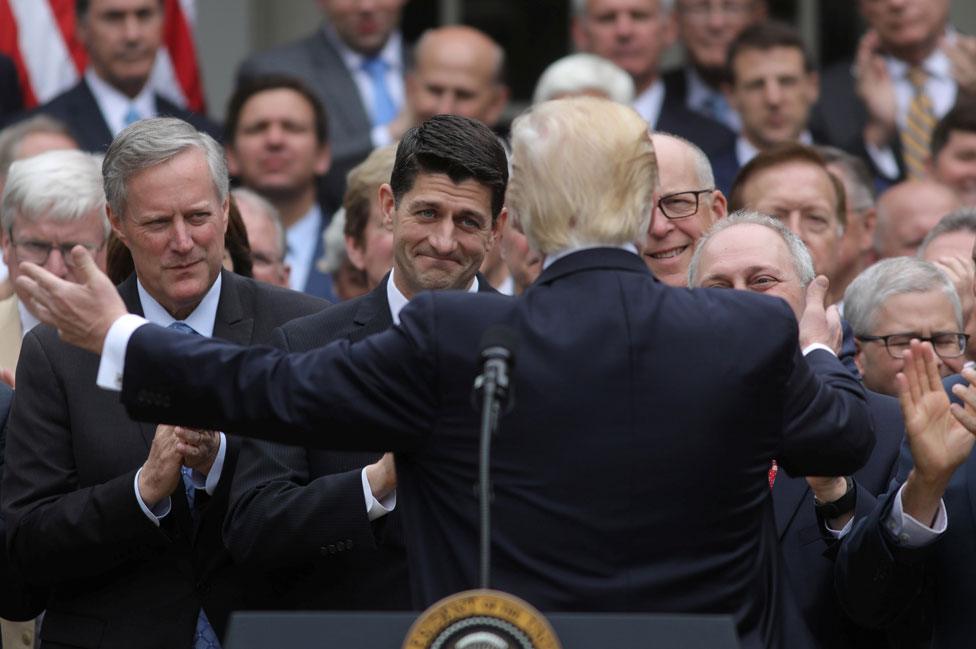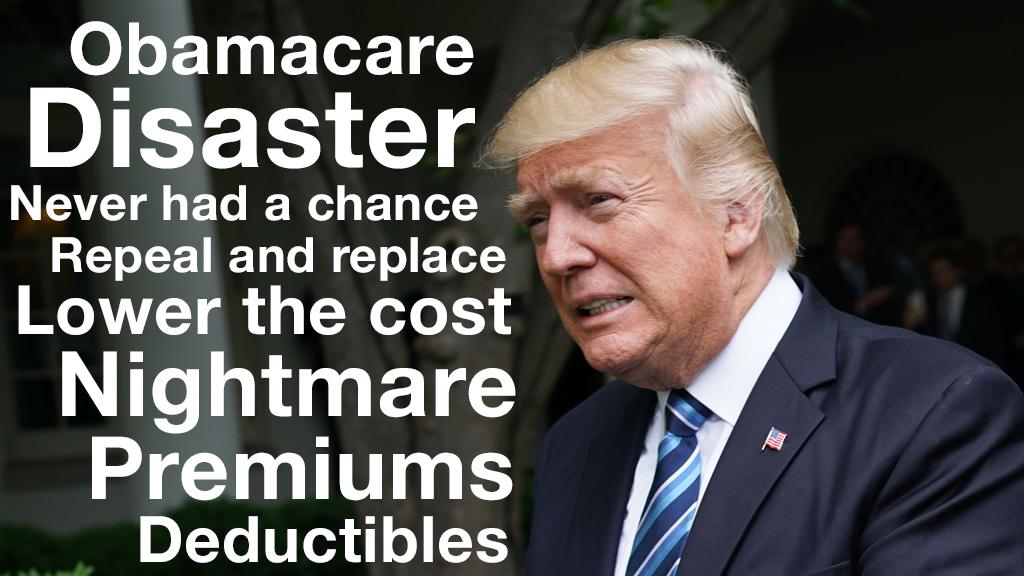Republicans delay Senate healthcare vote
- Published

Republicans will delay their vote on health insurance legislation
US Senate Republicans have delayed a vote on their healthcare bill until after next week's 4 July holiday.
The announcement by Senate Majority Leader Mitch McConnell is a setback to their plan to replace Obamacare.
Eight Republican senators have vowed to oppose the bill and the party can only afford to lose two votes to get it passed in the upper chamber.
US President Donald Trump invited Senate Republicans to the White House for a meeting on Tuesday afternoon.
Sitting alongside some of the party rebels, he said: "This will be great if we get it done. And if we don't get it done, it's just going to be something that we're not going to like. And that's okay, and I understand that very well."
A similar version of the bill has already passed the House, after facing a similar delay.
After Congress returns from the bank holiday, there will be a two-week window before the summer break.
Mr McConnell vowed to continue to try to find the votes, and would make changes to the bill if necessary.
Moderate senators say the bill will harm some of their vulnerable constituents, while conservatives say it has too much government interference.
The news of a delay comes just one day after the non-partisan Congressional Budgetary Office said the bill would strip 22 million Americans of health insurance over the next 10 years.

Democrats held photos of patients during a press conference on the Capitol steps to oppose the bill
What is in the bill?
The 142-page Senate bill - the Better Care Reconciliation Act of 2017 - phases out the expansion of Medicaid, a government health programme for the low-income Americans, and imposes deep cuts to the programme.
The bill also gives states more latitude in requiring insurers to provide essential health benefits guaranteed under Obamacare, including emergency and maternity care and mental health services.
Details also include:
Repealing taxes on the wealthy and insurance companies
Continuing payments to health insurance companies to reimburse them for subsidies used to help pay for out-of-pocket costs for low-income Americans for at least two years
Stripping funding for US women's health group Planned Parenthood for a year

Where does the bill go now? - Anthony Zurcher, BBC News, Washington
We have our first tangible indication of just how dire the situation is for the Senate healthcare bill.
House Republicans faced similar setbacks, of course. In fact, their leaders didn't delay their measure until just hours before what would have been a doomed vote. The Senate, as always, moves more cautiously. The political reality in both instances, however, is the same.
Moderates Republicans think the bill cuts government health programmes too much. Conservatives believe the reforms don't go far enough.
The House eventually managed to find a compromise. Senators can be a bit more stubborn, though - and the Republican margins in that chamber are slimmer.
Washington politicians now head home for a week of Fourth of July parades and constituent meetings. They're certain to get an earful from across the political spectrum.
When they return, they'll have just three weeks to cobble together a solution - while also juggling the need to reach a budget agreement and raise the federal debt ceiling. A vote in July could be harder, not easier.
Senate Republican leader Mitch McConnell has proven to be a legislative magician, but if he pulls this off it will rank among his greatest tricks of all.

Trump's battles with Obamacare - in his own words
Why the opposition?
At least five Senate Republicans had announced opposition to the bill, before the delay was announced. Another three senators joined the rebels hours later on Tuesday.
Moderate Republicans who have opposed the bill criticised it for stripping protections for the poor and elderly, as well as access to women's health.
Conservatives are upset that the bill "does not go far enough" to repeal the Affordable Care Act passed under Barack Obama.
Not one single Democrat is expected to support the proposed legislation, having lambasted it as a huge transfer of wealth from poor to rich.
Top Democrat Nancy Pelosi has warned that "hundreds of thousands" of Americans will die if the bill passes.
"Republicans cannot excise the rotten core" of this bill, said Democrat Senator Chuck Schumer after the delay was announced.
The American Association of Retired Persons, the nation's oldest non-profit organisation representing Americans over 50 years-old, slammed the bill as an "age tax".

Trump took plaudits for the House bill he later condemned
What can Trump do?
The president has already been playing a significant role, phoning wavering senators like Ted Cruz, to try to get them behind the plan.
He has the power to offer perks and dole out punishment to individual members of Congress who need something more than simple persuasion.
On Tuesday, a pro-Trump fundraising group began a £1m television and radio campaign, external against Senator Dean Heller as he prepares for re-election in Nevada in 2018.
But the president has had an ambiguous relationship with his party's legislation, decrying the House bill as "mean" just weeks after celebrating its passing through the lower chamber.
When asked what the president thought of the Senate bill, his spokeswoman Sarah Sanders said she had not yet asked him.
- Published20 September 2017

- Published24 March 2017
